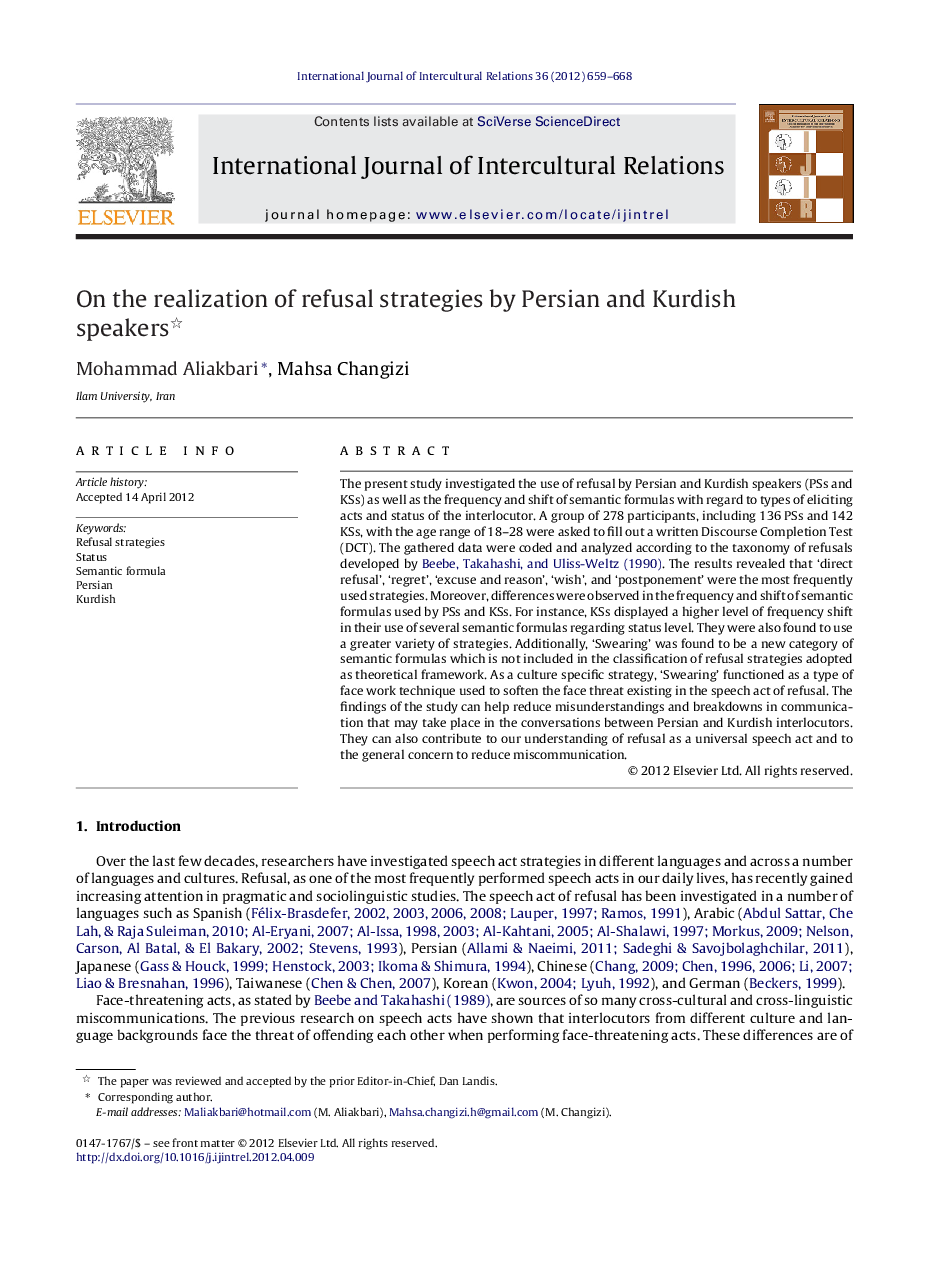| کد مقاله | کد نشریه | سال انتشار | مقاله انگلیسی | نسخه تمام متن |
|---|---|---|---|---|
| 947264 | 1475761 | 2012 | 10 صفحه PDF | دانلود رایگان |

The present study investigated the use of refusal by Persian and Kurdish speakers (PSs and KSs) as well as the frequency and shift of semantic formulas with regard to types of eliciting acts and status of the interlocutor. A group of 278 participants, including 136 PSs and 142 KSs, with the age range of 18–28 were asked to fill out a written Discourse Completion Test (DCT). The gathered data were coded and analyzed according to the taxonomy of refusals developed by Beebe, Takahashi, and Uliss-Weltz (1990). The results revealed that ‘direct refusal’, ‘regret’, ‘excuse and reason’, ‘wish’, and ‘postponement’ were the most frequently used strategies. Moreover, differences were observed in the frequency and shift of semantic formulas used by PSs and KSs. For instance, KSs displayed a higher level of frequency shift in their use of several semantic formulas regarding status level. They were also found to use a greater variety of strategies. Additionally, ‘Swearing’ was found to be a new category of semantic formulas which is not included in the classification of refusal strategies adopted as theoretical framework. As a culture specific strategy, ‘Swearing’ functioned as a type of face work technique used to soften the face threat existing in the speech act of refusal. The findings of the study can help reduce misunderstandings and breakdowns in communication that may take place in the conversations between Persian and Kurdish interlocutors. They can also contribute to our understanding of refusal as a universal speech act and to the general concern to reduce miscommunication.
► We studied the common refusal strategies in Persian and Kurdish.
► Data represented frequent use of politeness markers especially in refusal to higher status.
► In both languages, “swearing” was adopted in refusing ‘request’ and ‘invitation’.
► Both similarities and differences were observed in refusal strategies adopted in Persian and Kurdish.
► The refusal strategies most frequently used were ‘excuse and reason’ for request, ‘postponement’ for invitation, and ‘direct refusal’ for suggestion and offer.
Journal: International Journal of Intercultural Relations - Volume 36, Issue 5, September 2012, Pages 659–668